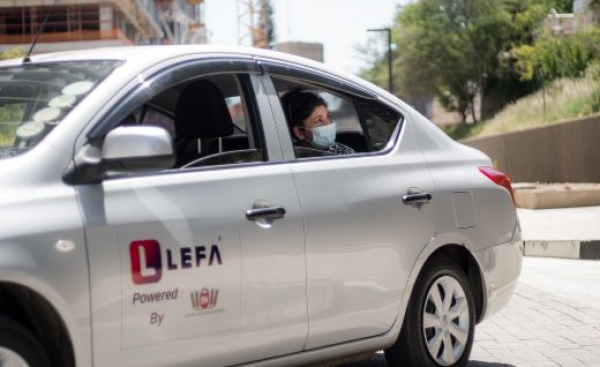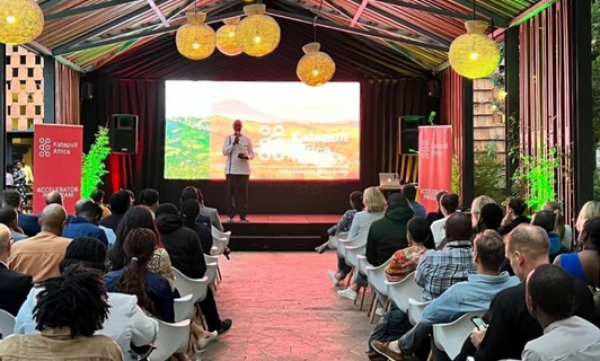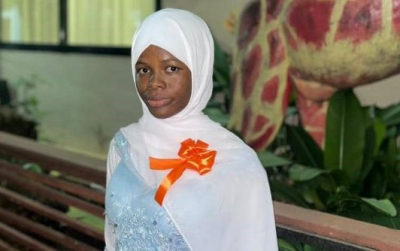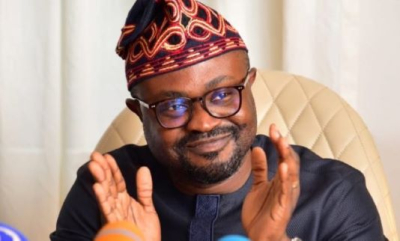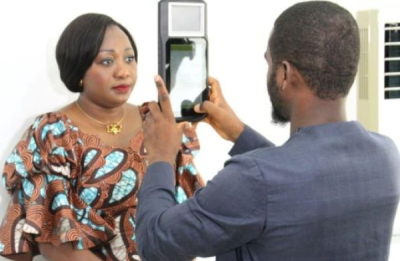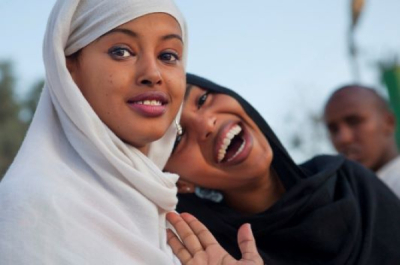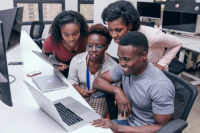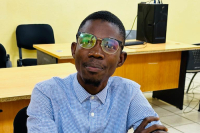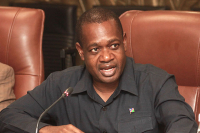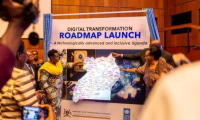In Africa, there is a growing presence of e-mobility companies. Multinationals like Uber and Bolt coexist with local initiatives on the continent.
Lefa is an e-mobility solution developed by an eponymous Namibian startup. It enables users to easily send drivers on their errands.
Through its Android and iOS apps, a user can create an account by entering his/her phone number and a valid email address. Once this step is completed, users can start ordering cabs. The process is simple. They just need to enter their destination to get things started. To make the order process even simpler, Lefa has a feature to save favorite destinations.
The solution offers various types of cars and rates, depending on users’ preferences. Its applications integrate real-time monitoring features as well as several payment methods. Nevertheless, users can also pay for their rides with cash.
"LEFA charges a minimum of N$40.00 per trip. Fares are calculated based on the distance and duration of the ride at N$4.00/kilometer plus N$3.50/minute rate. Once you enter your pickup and dropoff address, the LEFA app will automatically calculate the fares before you confirm your trip. LEFA offers no fixed fares or surge pricing," the startup explains in its FAQ section.
In addition to on-demand errands, the start-up also offers a variety of services such as personnel transport, event transportation solutions, and parcel delivery services.
Since its launch, its Android app has been downloaded more than 10,000 times, according to Play Store data.
Adoni Conrad Quenum
The accelerator was born of the desire of Norwegian investment company Katapult to stimulate innovation in agritech and foodtech in Africa. Through its acceleration programs, it helps startups grow.
Launched in 2020 by Norwegian investment company Katapult, Katapult Africa invests in the next generation of agritech and climate tech startups in Africa.
Apart from Katapult, the accelerator is supported by major institutions, including the Tony Blair Institute (TBI) for Global Change, Norrsken, and Smart Africa.
With offices in Mauritius and Rwanda, every year, Katapult Africa launches acceleration programs and investment vehicles targeting foodtech and agritech startups.
Currently, it is led by Philip Gasaatura, an experienced investor and entrepreneur. It recruits the best startups and gives them access to its global network of impact investors, mentors, experts, partner companies, and alumni.
To take part in its programs, startups need to specialize in agricultural or food technology, have a corporate structure, and be active for at least two years with a minimum of $10,000 in annual revenue. Katapult Africa invests between $150,000 and $400,000 in the selected companies.
"Our goal is to find, invest in, and help scale some of the most exciting tech companies with the most impact potential on Africa’s food and agri value chains, across Africa," says Philip Gasaatura.
Katapult Africa has already invested in several companies including Crop2Cash, which enables small farmers in rural Nigeria to receive digital payments and develop their financial identity. Over the next four to five years, the accelerator "plans to invest in 60 to 80 companies", according to Philip Gasaatura.
Melchior Koba
The 21-year-old entrepreneur seeks to make a positive impact on her community by solving problems she relates to, through tech. She has great ambitions for the future.
Hawanatu Sesay (picture) is an aspiring entrepreneur and programmer from Sierra Leone. She is the founder of the Sierra Learning Complaint website. The tool enables students to anonymously voice their educational concerns. Through this website, she ensures students’ complaints reach the relevant authorities.
Passionate about positive change, Hawanatu created Sierra Learning Complaint after a computer programming training at Orange Fablab (in 2022). “Orange has provided knowledge and career development programs. They have helped me to identify my hidden potential,” Hawanatu says. This experience has given her the ability to act more effectively by using the current tools that young people like her love.
Apart from her work with the complaint site, Hawanatu who has also developed an interest in other technologies is actively working on an Internet of Things (IoT) project. The project aims to revolutionize agriculture by monitoring soil conditions, providing valuable insights to farmers, and helping troubleshoot any growth issues affecting their crops. Through the project, she aims to contribute to food security and sustainable farming in her community.
Before her entrepreneurial pursuits, Hawanatu engaged in volunteer work with a patriotic advocacy organization (2018-2021) during her school years. More recently (2021), she joined "Digital Islam," an organization providing charity to the less fortunate, and she is still an active volunteer.
Hawanatu Sesay exemplifies a young visionary determined to make a positive impact in her community. With her innovative mindset and commitment to using technology for social good, she is poised to become a significant figure in the tech and social entrepreneurship spheres. As she awaits college admission, she continues to pursue her passions and create positive change through her work.
Hikmatu Bilali
In a context of cross-border criminality encompassing terrorism and more, the Nigerian authorities wish to better control entry and exit from the country. ICT emerges as a potential solution to this concern.
Minister of Interior Hon. Olubunmi Tunji-Ojo (picture), on August 22, introduced a plan to deploy advanced technology for securing Nigeria's borders.
The plan, revealed during a news conference, aims to leverage technology to fortify land, air, and sea borders, helping address escalating threats. "We must protect all borders - land, air, sea," said Hon. Tunji-Ojo, stressing technology's role as a complement to current security efforts.
The initiative aligns with President Bola Tinubu's reform call, aiming to instill hope via the Interior Ministry's efforts.
To complement this move, the ministry would also focus on optimizing the visa and passport system, minimizing delays, and enhancing transparency. The minister also pledged respectful treatment at passport offices, with foreign entry based on merit.
The move underscores the government's commitment to a safer, more secure Nigeria through technology and strategic reforms.
Hikmatu Bilali
In Africa, thousands of ghost civil servants still benefit from governments’ outdated management systems. To tackle the issue, some countries on the continent have turned to new technologies.
Guinea launched last week, August 16, a biometric enrolment campaign targeting officials and contract civil servants.
The campaign was launched by the Minister of Labor and Public Works, Julien Yombouno. Set to last 44 days, it started from the Ministry of Labor and will extend to other ministries over the period. Over 87,000 civil servants are expected to be enrolled.
“The main goal is to determine the real headcount of the civil service. With the accurate figures, we will be able to calculate exactly how much the State pays its civil servants every month. The end goal, however, is to establish a single administrative and accounting registry,” Yombouno explained.
According to the Minister, the single biometric registry will regroup the data of all Guinean civil servants and contract employees, thus guaranteeing "a single agent, a single registration number, and a single salary".
The government picked Digitalis, a local startup, to carry out the project. The company develops biometric applications and software.
Enrolled civil servants will get a receipt after registering. They will later exchange the receipt for their professional card.
Like Guinea, several African countries have recently turned to technology to flush out ghost workers and put an end to the payment of undue wages. The aim is to clean up the civil service and remove the ghost workers who cost African countries tens of billions of CFA francs every year.
Samira Njoya
In 2012, the family counseling association Guryosamo was founded, in Somalia, to help young Somalis get married among other things. Ten years later, it decided to modernize operations, hence the birth of Guurdoon.
Guurdoon is a digital solution developed by the Somali association Guryosamo, founded in 2012 and headed by Ahmed Abshir Geedi. The solution, launched in 2022, connects users looking for spouses.
In the Somali language, "Guurdoon" literally means "in search of marriage".
"We have big problems today with marriages. Our young people are rushing to get married and then immediately getting divorced. We understood the need to promote a platform where people of all ages can meet and find each other as partners since our young people are mainly on social networks these days. The [solution] is something totally new, and some people are confused by its use," says Ahmed Abshir Geedi.
Its mobile app is available only for Android devices. Through the app, users can register for accounts by entering a number of information. Among other things, they will input their level of education, the desired education level, and the employment status of their partners, etc..
Unlike traditional dating applications, where users have to swipe profiles, Guurdoon selects the best profiles that match users’ requirements. "I entered the characteristics I wanted in my partner and the app suggested [...] I just need to make up my mind and choose one," explains Abdifatah Adan, a tuktuk driver in Mogadishu. Although Somalia is a conservative, religious-oriented society, the app has already been downloaded more than 50,000 times, according to Play Store data.
Adoni Conrad Quenum
FAST Accelerator connects African startups to its dynamic ecosystem and an extensive partner network
The accelerator focuses on supporting and funding the next generation of African innovators, particularly in sectors that can harness the power of artificial intelligence.
FAST Accelerator is a startup accelerator launched, in 2022, by Flapmax, a US-based data and artificial intelligence technology company founded by Dave Ojika, in partnership with Microsoft. It identifies, supports, and funds African innovators building impactful businesses.
“FAST Accelerator represents our commitment to supporting ambitious entrepreneurs who are driving sustainable innovation across the continent of Africa and emerging markets,” said Dave Ojika.
The accelerator’s program combines business development, technology integration, funding, and community-building opportunities to enable African start-ups to grow faster and sustainably.
Through its AI Academy, the accelerator also gives companies access to a pool of specialized talent and its over 500 global partners. It works with a network of venture capital firms to offer funding opportunities for project carriers.
Startups taking part in its program also have access to Microsoft and Flapmax engineering teams to innovate and create new products or offers. They can earn up to $250,000 in cloud credits, including access to the Founders Hub and virtual reality (VR) hardware. They also have access to Microsoft's venture capital network to raise funds and develop their business, among other benefits.
Although open to all technology sectors, FAST Accelerator is particularly interested in start-ups innovating in key areas where AI can be exploited. These include education, manufacturing, fintech, agriculture, and healthcare.
In the first cohort (2022) of the FAST Accelerator program, 12 start-ups were selected and supported. The registration phase for the second cohort of the program, launched in partnership with Intel, closed on August 5, 2023.
FAST Accelerator also organizes hackathons and events such as the AI Builders Day 2023, which took place on April 13. It developed the AI Builders Garage, a platform designed for young entrepreneurs and developers to turn their ideas into sustainable solutions.
Melchior Koba
This entrepreneur is leveraging his software development skills to make online learning more flexible globally. He aims to prepare the youth for the job market through his startup.
Musa Turay is a software developer with expertise in web and mobile app development, database management systems, DevOps, and user experience design. He has several years of diverse project experience.
Musa holds a Higher National Diploma in Information and Communication Technology from Sierra Leone’s Eastern Polytechnic (2021) and a Full Stack Web and Mobile App Development Certificate from Orange Digital Centre, along with various online certifications.
In 2019, he founded TurayMathic e-Learning Technologies to offer flexible online learning experiences globally. His aim, through the startup, is to democratize education, empower individuals, and make them career-ready. “My vision is to provide Sierra Leoneans and worldwide students with flexible and rigorous online learning experiences that equip them with the knowledge, skills, and characteristics necessary for career readiness,” he said.
TurayMathic e-Learning stands out with cutting-edge AI-driven instruction, global accessibility, career readiness focus, educator support, and a thriving community, offering personalized learning, multilingual courses, real-world projects, industry partnerships, affordability, security, social impact, and continuous innovation.
As the founder of TurayMathic e-Learning Technologies, Musa aims to be recognized as a leader in innovative instructional technologies, ensuring education reaches everyone globally, and fostering a digital community for continuous learning, communication, and collaboration.
In January 2022, he was incubated at the Orange Digital Centre, gaining valuable insights and skills in programming, database management, and more. Participating in the program provided me with a valuable opportunity to delve into high-level programming and gain a comprehensive understanding of software development, he said.
Throughout his career, he has worked on diverse projects, ranging from web and mobile applications to backend systems. His immediate plans include excelling in his current role and pursuing advanced training. Musa aims to shape the future of software development positively as technology evolves.
Hikmatu Bilali
The Southern African country joins the technological advancement trends in the region. This move aims to increase the security of people and will contribute to data management for social and economic development.
Namibia's Cabinet has given the green light to the implementation of contactless microchip identity documents. These advanced digital IDs will consolidate various national documents, marking a pivotal step in the country's technological evolution. Minister of Information and Communication Technology, Dr. Peya Mushelenga, announced this development during his customary weekly Cabinet Briefing which took place on August 15.
During an interview with Nina on NBC Digital News' Daily Roundup, Jackson Wandjiva, Executive Director of Civil Registration at the Ministry of Home Affairs, Immigration, Safety, and Security (MHAISS), emphasized that the move will help “Provide a secure and inclusive identity management environment that will benefit the holder and the service providers (..) eliminate fraud and identity theft.”
The initiative falls under the purview of MHAISS, which has received a directive to explore the integration of diverse national documents into these digital IDs. With this revolutionary approach, Namibia aims to streamline administrative processes, enhance security measures, and provide citizens with a more convenient means of identification.
This recent Cabinet decision highlights the nation's proactive approach to technological advancement. These key developments signal the government's determination to propel the country toward a brighter and more inclusive future.
Hikmatu Bilali
Digital technologies are quite useful, and many of their advantages emerged during the Covid-19 crisis. Seduced by them, many African governments decided to make the digital sector a pillar of their development strategy.
The Ugandan Ministry of ICT and National Orientation launched a new plan for digital transformation on August 17. The plan revolves around seven (7) key axes: digital infrastructure and connectivity; digital services; cybersecurity, data protection and privacy; digital skills; innovation and entrepreneurship; systematic experimentation and preservation of the national environment.
"The Digital Transformation Plan represents a bold vision of our nation's future, one that is not driven by technology alone, but in which technology serves as a catalyst for sustainable development, economic growth and improved living conditions for all Ugandans," said the ICT Minister, Chris Baryomunsi.
The five-year strategy (2023-2027) was drawn with the help of several partners, including the UN Development Program (UNDP). It is set to foster an administrative, economic, and social environment that will benefit both Ugandans and foreign investors.
According to a government survey on ICT conducted nationwide, only 5% of government ministries, departments, and agencies had internal IT interoperability frameworks in 2022. Furthermore, only 61% of local governments had access to the Internet, while only 5.6% of their staff regularly used a computer for business purposes.
Around one in two businesses (55%) had Internet access in the year reviewed, and only one in three had a professional website; 94% of the population still had no Internet access at home. 74% of the population had a cell phone, 49% of the population had a Mobile Money account, versus 10% with a personal bank account. The broadband Internet penetration rate was 55%. Currently, the contribution of ICT to gross domestic product (GDP) is estimated at 9%.
Uganda’s new Digital Transformation Plan falls under its 2040 Digital Uganda Vision launched in 2013.
Muriel Edjo
More...
Amid the ongoing technological revolution, the tech giant has introduced a range of initiatives aimed at involving African startups. This highlights Google's dedication to cultivating innovation within the African technology landscape.
Global tech giant Google has introduced the 'Google for Startups Accelerator: AI First' program, now open for applications. This initiative aims to support African startups using artificial intelligence (AI) to solve local problems.
The 10-week equity-free accelerator is designed for startups up to the series A stage operating in Africa or working on Africa-focused AI solutions. Participants will gain access to Google's AI expertise, up to $350,000 Google Cloud credits, mentorship from AI professionals, and networking opportunities.
The program highlights AI's transformative global role while acknowledging African startups' contributions to tackling regional issues with AI solutions. Folarin Aiyegbusi, Google's Head of Startup Ecosystem for Africa, commended the dynamic tech landscape and the startups' vision. “AI First' is more than a program; it's a testament to our belief in the vision of these startups, ensuring they have the support and guidance they need to realize their full potential,” he said.
Since its 2018 launch, the Google for Startups Accelerator Africa program has aided 106 startups across 17 countries, raising over $263 million and creating 2,800 job opportunities.
Startups interested in the initiative can apply via this link by September 6, 2023.
Hikmatu Bilali
The digital solution was launched by two entrepreneurs experienced in the management of private, government, and non-profit initiatives. Its aim is to demystify mathematics.
Watobe is an edtech startup that teaches, mainly secondary school students, mathematics. The Cape Town-based start-up was founded in 2019 by Erik Lönnroth and Henry Warren.
It has an Android app through which users can seamlessly access its courses. Users on the iOS platform, however, need to download the videoconferencing app Zoom to be able to access its courses. The startup offers two live classes weekly. Those who miss the live classes can access the recordings on its platform 24 hours after the live session to solve the quizzes on time.
Based on quizzes and participation in live classes, teachers track learners’ progress and send weekly reports to parents. "Watobe live classes are interactive from start to finish and include plenty of opportunity for questions. Questions can be asked either verbally or in writing using the live chat," the platform says in its FAQ.
The edtech startup offers two types of packages: one costs 299 rand (approx. $15.95) and the other is 99 rand. It also offers a 14-day trial for learners to validate whether or not this type of learning is right for them. This trial period costs 50 rand. Since its launch, the company has raised around $1.1 million to finance its growth.
Adoni Conrad Quenum
His company, Charis UAS, manufactures self-driving cars that leverage artificial intelligence to generate 3D geospatial data in near-real time. These innovations earned him numerous awards and distinctions.
Eric Rutayisire Muziga (photo) is a Rwandan entrepreneur who graduated from the University of Minnesota with a master's in electrical and electronic engineering. He is the founder and CEO of Charis Unmanned Aerial Solutions (Charis UAS), the first drone manufacturing company to be licensed in Rwanda.
Launched in 2014, Charis UAS harnesses the power of artificial intelligence and cutting-edge technologies to deliver timely and accurate 3D geospatial data to help industries make smart decisions. It specializes in building and integrating sensor systems, drones, and data solutions to deliver high-quality service. The company covers several countries, including Senegal, Côte d'Ivoire, Ghana, Gabon, the Republic of Congo, DR Congo, Angola, Uganda, Kenya, and Tanzania.
Charis UAS developed Inganji, a drone technology “wholly designed and manufactured in Rwanda by Rwandan engineers and pilots with thousands of flight time experience.” According to its designers, the technology boasts notable features such as high data security, energy efficiency, high resolution, and an intelligent zoom camera. It is suitable for security and surveillance applications, we learn.
Charis UAS has also developed a digital project manager for critical infrastructure projects. Called Charis Analytics, it digitizes worksites and tracks projects in near-real time with actionable information while enabling collaboration with all stakeholders and accelerating project completion.
In addition, the drone company has designed a drone capable of eliminating mosquitoes over large areas, thus contributing to the fight against malaria. The device, equipped with a 10-liter tank containing insecticide that destroys mosquito breeding sites, was immediately adopted by the Rwandan government.
The CEO is a member of the board of directors of venture capital and private equity company Crystal Ventures. His works have earned him several distinctions. In 2019, he made it to the tech category of the Forbes 30 under 30 list. He was also in the top 3 of the All Africa Business Leader Award. Through Charis UAS, he is one of the winners of the 2023 Google for Startups Black Founders Fund.
Melchior Koba
The partnership aims to empower people and businesses by leveraging technology infrastructure to improve access to goods and services. This step should contribute to fostering economic growth on the continent.
Mastercard, a global fintech leader, partnered earlier this month with Lipa Later, a key fintech player, to boost the adoption of Buy Now, Pay Later (BNPL) services in Africa.
This collaboration will offer tailored BNPL solutions and improved payment options, benefiting both consumers and merchants. With Mastercard's merchant network, tech innovations, and Lipa Later's consumer credit expertise, the partnership aims to enhance access to crucial products and services, streamlining credit access and transaction experiences.
Kenya, with an 84% formal financial service usage according to the 2021 FinAccess Household Survey Report, shows growth in financial inclusion. Yet, a significant portion still lacks access. This collaboration seeks to bridge this gap, extending digital financial services to the underserved.
Shehryar Ali, Mastercard's East Africa Country Manager, stressed the partnership's role in providing new digital payment solutions. By leveraging Lipa Later, Mastercard aims to ensure secure digital payments and foster financial inclusion for underserved communities, thereby promoting economic growth. “Mastercard is fundamentally committed to promoting financial inclusion, and this alliance unfolds fresh avenues for consumers and retailers to tap into previously inaccessible digital payment solutions,” she stated.
The BNPL solution simplifies financing at checkout, with instant Know Your Customer (KYC) capabilities. This benefits consumers and boosts merchant revenue, allowing a wider product range.
Eric Muli, CEO of Lipa Later Group, highlighted the partnership's significance in expanding BNPL and lending solutions in Africa. The collaboration seeks to stimulate economic empowerment and innovation in Africa's retail sector.
This partnership showcases Mastercard's commitment to inclusive growth through technology-driven solutions. By backing new payment models and local entrepreneurship, Mastercard propels economic progress in Africa.
Hikmatu Bilali


